Green Manifesto sets a Green Punjab path for political parties in Assembly Elections 2022
Academicians, environmental activists, religious activists led by Baba Seechewal and Giani Kewal Singh staged a spirited march in Ludhiana to enforce a Green Manifesto for all political parties and candidates contesting elections for the Punjab Assembly Elections 2022. The team comprising a galaxy of activists across Punjab are making concerted efforts to ensure that the political parties heed their plea in the interests of the future of Punjab. The list of issues presented by the Punjab Vatavaran Chetna Lehar and PAC Sutlej Mattewara teams is a step in the right direction. Presenting the agenda, the manifesto asks searching questions from political parties, which need ponderance by those not contesting elections also. The World Sikh News presents the full document here.
![Academicians, environmental activists, religious activists led by Baba Seechewal and Giani Kewal Singh staged a spirited march in Ludhiana to enforce a Green Manifesto for all political parties and candidates contesting elections for the Punjab Assembly Elections 2022. The team comprising a galaxy of activists across Punjab are making concerted efforts to ensure that the political parties heed their plea in the interests of the future of Punjab. The list of issues presented by the Punjab Vatavaran Chetna Lehar and […]](https://www.theworldsikhnews.com/wp-content/uploads/2022/02/Green-march-360x266.jpg)
Punjab needs a pollution-free and clean model of development. The befooling of Punjabis by marketing destruction as progress and promoting a model of development which is polluting and damaging to our precious natural resources like water and air are costing us dearly in terms of health. This needs to change now.
The Green Manifesto -drafted and endorsed by Gurpreet Singh Chandbaja of Bhai Ghanayia Cancer Roko Seva Society and Naroa Punjab Manch, Faridkot, Col CM Lakhanpal, Sangharsh Committee, PAC Sutlej & Mattewara Jungle, Ludhiana, Ranjodh Singh, Ramgarhia Educational Council, Ludhiana, Jaswinder Singh Advocate, Akal Purakh Ki Fauj, Amritsar, Dr A.S Mann, Scientific Awareness And Social Welfare Forum, Sangrur, Ms Harpreet Soin, Ludhiana Cares Ladies Society, Ludhiana, Kultar Singh Sandhwan, MLA Kotkapura, Bhai Ghanayia Cancer Roko Seva Society, Faridkot, Mohinderpal Loomba, Chairman, Rural NGO, Moga, Kapil Arora, President, Council of Engineers, Ms Puja Sen Gupta, Earth Care Society, Dr Daler Singh, District Agricuture Officer (Retired) -Vattan Vala Jhona Expert, Kuldeep Singh Chunagra, Naroa Punjab Manch, Patran, Patiala, Kuldeep Singh Khaira, Vigilant Citizens Forum,Ludhiana, Mohinder Singh Sekhon, Punjabi Bhasha Pasaar Bhaichara, Ludhiana, Shaminder Singh Longowal, Nature Human Centric People’s Movement, Dr Amandeep Singh Bains, RBS Roots, PAC Sutlej & Mattewara Jungle, Jaskirat Singh, under the aegis of Punjab Vatavaran Chetna Lehar and PAC Sutlej Mattewara presents its views to open discussion and debate on these issues.
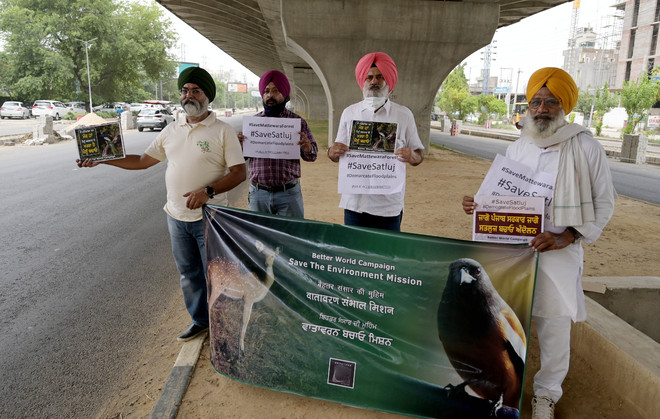
GREEN MANIFESTO FOR PUNJAB 2022
1. Mattewara Textile Park / Modern Industrial Park, KoomKalan: It’s a very inappropriate choice of location given the ecological sensitivity and proximity of Sutlej which is a direct drinking water source of millions on one side and Mattewara forest on the other.
What will your govt do to change the location or cancellation of this project if elected?
2. Industrial policy to promote only clean industries: Punjab is an agrarian state that depends a lot on its water resources -both underground and surface water. This water needs to be protected from pollution via wastewater which originates in both industrial and domestic sources. Punjab needs more clean industries which do not damage its water reserves and environment.
What will your government’s industrial policy discourage polluting industries and encourage clean industries?
3. Forests: Punjab has only 3.6% area under forest cover which is the lowest in the country and even below Rajasthan. Most of this is near the Himachal border and there is hardly any forest in the plains.
What will be your forest cover improvement policy?
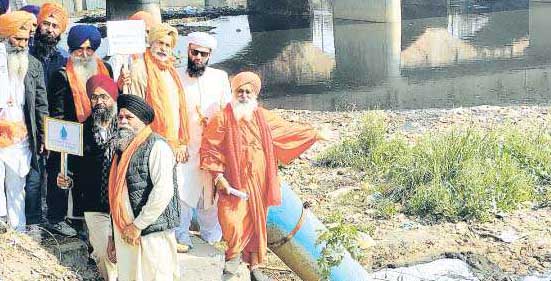
4. Trees in non-forest areas: Lots of trees are lost every year in the name of development, especially new roads and road expansion projects. Lots of trees are cut even for generating revenue by village panchayats and schools to sell timber. There have been demands from many civil society organizations for a complete ban on cutting of trees for at least 10 years in Punjab, as the campaign of “Rukh Bachao Manukh Bachao” campaign by Naroa Punjab Manch.
Will your government impose and implement such a ban on the cutting of trees?
5. Trees in farms: Over the years trees have reduced in the farms across the state.
Do you have any ideas on policy measures to reverse this trend?
6. Vacant Lands: Vacant government lands like panchayat/municipal/state government lands should be planted with trees of native varieties.
7. Biodiversity: What will be your plan to protect the biodiversity of the state which is so far a completely neglected issue?
8. Protection of rivers from illegal mining: What will you do about it?
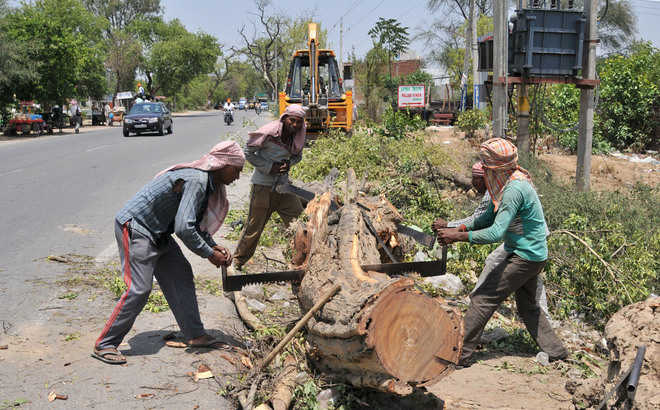
9. Protection of river flood plains: River flood plains are very important and their protection is also very important. They are being damaged by illegal mining, illegal construction activity and even ill-planned schemes by the government itself where they are themselves planning concrete jungles on flood plains of Sutlej and other rivers in Punjab. The government of Punjab has not even followed the directions of the NGT to demarcate the flood plains of its rivers.
What will your government do about these flood plains?
10. Action plans submitted to NGT: The government of Punjab has submitted many action plans to the National Green Tribunal -NGT in recent years like those for clean river Sutlej, Beas, Ghaggar, Air, Rejuvenation of ponds, cleaning up of air, etc. The performance of the current government, as of the previous governments acting on those plans is not up to the mark as can be seen from the massive fines being imposed by NGT on the Punjab Pollution Control Board and adverse remarks by monitoring committees.
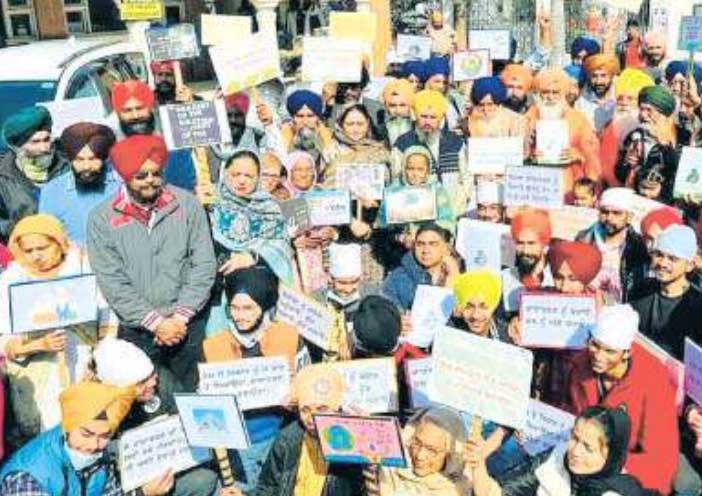
11. Sutlej cleanup: The Sutlej river is a drinking water source of millions, which has been badly polluted by Buddha Nullah and many other drains. The STPs of municipal authorities are not functioning properly. There is no way to audit their performance. The industrial common effluent treatment plants of the dyeing industry in Ludhiana are under construction for years despite assurances every few months by industries and PPCB.
12. Buddha Dariya Clean Up: The 650-crore Buddha Nullah Rejuvenation Project is being executed in a non-transparent manner which is a recipe for disaster. It has no eminent scientist in the leadership position to ensure that the project delivers on its promise of rejuvenating the Buddha Dariya.
What will you do to improve that?
13. Underground water: The quality and water table of underground aquifers are degrading due to over-extraction and under recharging of underground water.
How will you prevent over-extraction and how will you ensure better recharge?
14. Non-Kaddu Paddy Techniques: What will your government do to popularize non-kaddu rice-growing techniques for better rainwater harvesting on the massive 30000 sq kilometres of paddy fields (60% area of Punjab) and to promote less water-consuming rice-growing techniques which PAU has been reluctant to do for many years?
15. Rainwater Harvesting: What will be your policy for new commercial, industrial and residential buildings with regards to rainwater harvesting?
16. Desertification of Punjab: Many government and independent studies have suggested that Punjab is heading towards desertification.
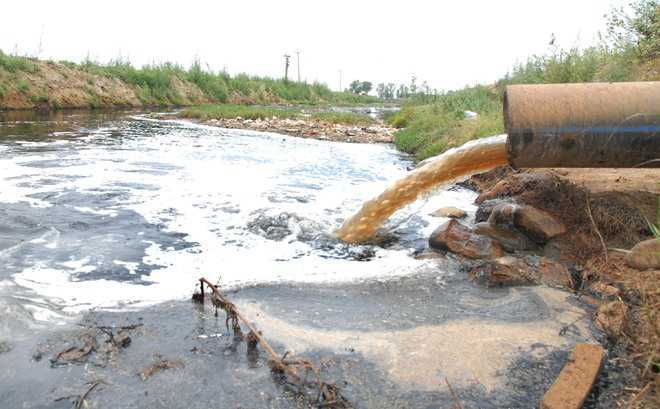
What will be your govt’s action plan towards that?
17. Protection and Rejuvenation of Ponds: Village ponds are being lost due to encroachment and are being filled up. This is leading to more pollution in rivers and reduction in wetlands in villages and reduced rainwater recharging.
18. Air Quality Issues: Punjab, especially its cities suffer from bad air quality. It includes air pollution from industrial, vehicular and farm sources.
What will be your plan to tackle these issues?
19. Dirty fuels: Dirty fuels like PET coke should be completely banned in Punjab for industrial fuel or other purposes. Such a ban should also be effectively ensured on the ground via checking and monitoring.
20. Vehicles: What will be your policy about vehicles especially polluting vehicles?
21. Thermal Power vs Clean Power: Punjab has been dependent mostly on thermal power which burns fossil fuel. This is both polluting and emits greenhouse gases.
What will be your policy to reduce dependence on coal and reduce pollution from coal-fired plants?
22. Crop diversification: Over-dependence on paddy is not just an agriculture problem, it’s also an environmental issue. Over extraction of groundwater is reducing water table. Deep underground water also has quality issues. So much production of paddy also causes difficulties in managing so much stubble which leads to stubble burning.
What will be your crop diversification plan if elected?
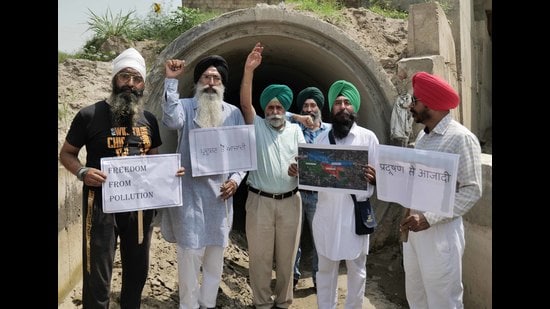
23. Pesticides and agrochemicals: What will you do to reduce the use of toxic chemicals in farms especially on food crops to produce healthier crops.
24. Single-use plastic: The government of Punjab banned plastic carry bags in 2016 along with many other single-use plastic items. Despite the ban, nothing was enforced on the ground and every nook and corner of Punjab has such banned items available.
Will your government implement the ban in letter and spirit?
25. Solid waste management: This is a huge problem that successive governments have miserably failed to manage.
What will be your plan to improve this?
26. Open garbage burning: This is a common practice that is banned on paper but like many other bans not followed.
How will you tackle this?
27. Protection of Green Belts: A lot of green belts are lost due to fraudulent change of land use by land clauses by development authorities themselves. Recently, the Ludhiana Improvement Trust was caught and prevented from doing this on one green belt via the NGT by some NGOs.
What will your government do to ensure green belts are protected, developed and nurtured?
28. Noise Pollution: This is a serious problem for many, especially in cities and towns and laws remain unimplemented.
What will you do about it?
29. Roof Top Solar Energy: Roof Top Solar power is a great way of generating clean electricity which must be promoted. The rooftop solar policy of the state so far is not very encouraging. The state should actively promote clean electricity production via rooftop solar energy by removing red-tapism in the net-metering policy and encouraging citizens to become self-sufficient in clean electricity production.
Will PEDA take this up seriously under your government?
30. Climate Change: Climate change is happening around the world and governments are mostly responding by putting their head in the sand. We have barely seen any discussion or debate on this topic while world governments and activists are seized with this.
Climate change is real, will your government take any real steps in this regard?
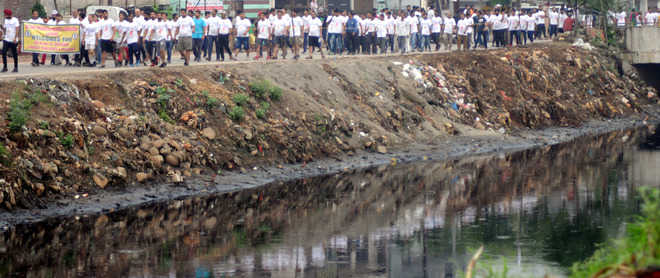
31. Transparency and ensuring zero corruption in environment contracts: Corruption is a way of life in government projects. Transparency is abhorred by most officials and they hold all documents close to their chest. The documents that should be in the public domain are not even shared easily under RTI. It’s a well-known fact that most officials, bureaucrats and politicians even hold up payments of the contractors engaged in contracts till they get their cut in the payments. This nexus leads to poor quality work and project failures. Timely audit of works to ensure quality and also timely payments to contractors after the work is done should be ensured so that no officials are able to hold environment-related projects to ransom and lead to their failure.
How will you ensure that environmental projects stop getting jeopardized for such reasons?
How will you ensure full transparency, proper execution and accountability in environment-related project contracts?
32. Punjab Pollution Control Board: Perceived as the fountainhead of corruption and inefficiency, this government board is one of the root causes for environmental degradation in Punjab.
What will your government’s policy ensure good governance by the PPCB in so far as issues relating to it?
33. Engagement with environment experts: So far most government projects get executed without any involvement of eminent environment experts. The government believes in doing everything through politicians and bureaucrats. One glaring example is that of the ‘Buddha Dariya Rejuvenation Project.’
34. Environment Education Policy: Environment is a compulsory subject in colleges but it is not taken seriously by anyone. There are hardly any teachers for this subject in colleges and the exam is without credits.
How does your party propose to change this?
35. Dairy clusters: Dairy clusters in cities and near rivers or other water bodies should be avoided as per NGT directions. Extreme concentration of cattle in a single cluster like in the Ludhiana city creates problems for sewage networks and STPs.
How will you ensure an environment-friendly policy on this?
36. Illegal colonies: Illegal colonies create a lot of pressure on the sewage systems of legal colonies near them.
What will be your policy on solid and liquid waste generated by such colonies?
37. Green Helpline: A functioning single statewide helpline number where complaints related to the illegal cutting of trees, pollution and other environmental matters etc can be reported must be set up without delay.
38. Green Police Stations: Special police stations in big cities like Ludhiana must come up to handle environment-related crimes.
39. River Gagghar: The water of River Gagghar used to be quite clean a few years ago. People used to use it for drinking and bathing. Now it has become a sewage drain. Industrial and domestic wastewater is flowing into it, most of which is untreated. This is polluting groundwater in the nearby areas that are suffering from diseases like jaundice and cancer. The government has not done much on this front.
What will you do about it if you come to power?
40. Public Transport: A few years ago, some cities of Punjab had started using city bus services which have now almost stopped. There are very few good public means of transport even in big cities like Ludhiana.
What will be your government’s transport policy?
